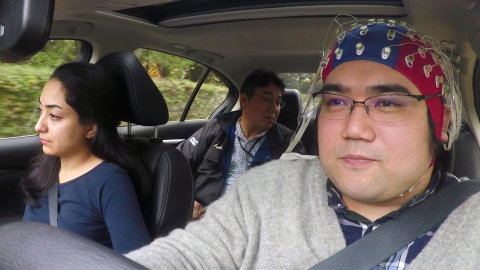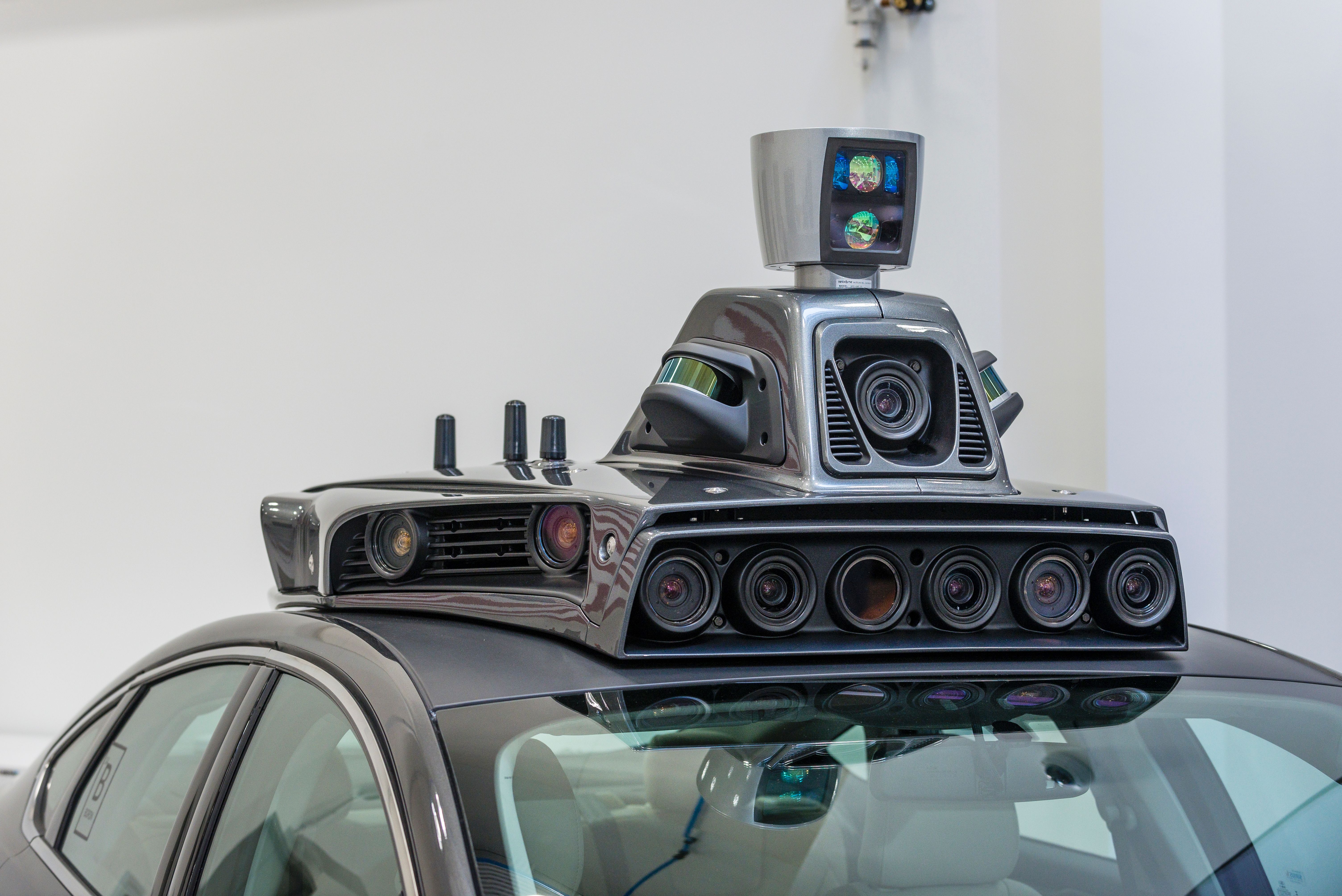Driverless Cars Are Already Old News — These New Nissans Drive with Your Brain

It’s easy to see that the days of autonomous cars are nearly upon us, with a number of manufacturers making great strides in taking that wheel-turning and pedal-pushing away from error-prone and bored humans. But what if you could drive the car just by thinking about it? This is the promise of cutting-edge technology being developed by Nissan, which is unveiling the world’s first brain-to-vehicle tech at the Consumer Electronics Show in Las Vegas.
Nissan’s system “decodes” what the driver is thinking, anticipating turns and reactions to road conditions to improve the driving experience. The “B2V” system has the driver wear a skullcap that’s reading activity in the brain while transmitting instructions to steering, acceleration and braking systems.
Lucian Gheorghe, the researcher who leads the project for Nissan, explained that while the driver is still in control of the car, turning the wheel and hitting gas, the car uses readings combined with artificial intelligence to predict such movements, starting action 0.2 to 0.5 seconds earlier.
“We imagine a future where manual driving is still a value of society,” said Gheorghe. “Driving pleasure is something as humans we should not lose.”
Georghe, who has a doctorate in applied neural technology, sees this system as an enhancement of the driving experience. It will be relevant in a future where even with autonomous vehicles taking over, there will be situations when people will want to drive themselves.
“You are feeling either that you are a better driver or the car is more sporty and more responsive,” expounded Georghe.“Even in autonomous driving, we are not building boxes in which you are sleeping. We are building a positive-experience delivering vehicle.”
The tech should take another 5 to 10 years to become fully developed.
Want to learn more about Nissan’s brain-to-vehicle technology? Check out this video:





